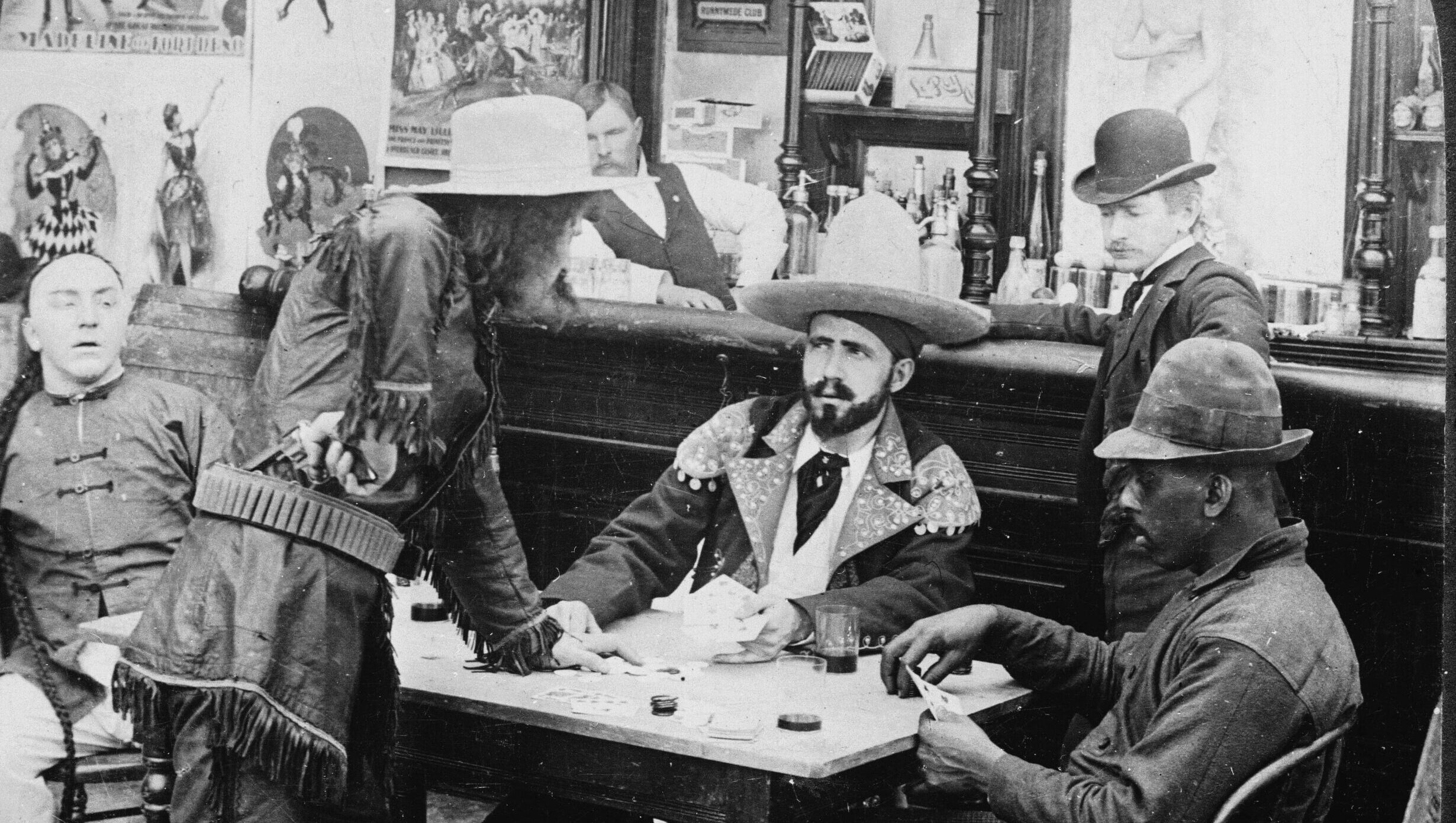God’s Country:
Christian Zionism in America
By Samuel Goldman
(University of Pennsylvania Press, 2018)
Unlike the disciplines of intellectual history and analytic philosophy, political philosophers have a story to tell. That story generally begins with Plato, Aristotle, and the rest of the Greek world. The Romans follow; then there is Augustine—who represents Rome’s end, in a double sense. What comes next depends, so often, on what judgment modernity receives. Celebrants generally move quickly to contract theory, pause to consider the dead-end investigations of Marx, Nietzsche, and the other anti-moderns, then perhaps finish with Utilitarian thinkers or maybe Rawls. Detractors might pause to consider Aquinas in depth so that they may give some indication of what will be lost when they turn to modern thinkers. Alternatively, they might pause to consider Machiavelli, whom they invoke not to fix the center of gravity in the medieval Church but rather to establish the pivot point after which concern for ancient virtue gives way to modern self-interest.
The story political philosophers have to tell is generally a European story, with America appearing as the outworking of the ideas of a (secular) Locke but not with a story of its own worth telling. The Federalist Papers, important as they may be as political documents, do not make the grade; and while the Puritan origins of America are noted (often with disdain), there is no place for them in the grander story of the West, because Calvinism, from which they spring, receives no serious treatment when the modern pantheon of European writers is considered. Luther, that other Reformer, often receives some attention—but less as a religious thinker than as a revolutionary whose stark separation of the carnal and spiritual made possible the reemergence of properly political thought, freed from the medieval overlayment of the Roman Catholic Church.
For most political philosophers trained in the Anglo-American world since World War II, the West is Europe, and Europe is the West. America is but a Lockean liberal afterthought, the home of crass individualism without attenuation—a formulation that has provided a train ticket to tenure for at least the last two generations of scholars. At the same time, the Puritans are homeless conceptual anomalies because the story of modern Europe is a wholly secular one.
This rather caricatured rendition of America fits the needs of a great many political philosophers, whose frame of reference—let us state it—is the crisis of Europe as it has played out from the Reformation to the Holocaust. This rendition blinds us to that other part of the American soul, the Hebraic Puritan part, without which no full accounting of America is possible.
Nor is it possible, without this accounting, to make sense of the current familial sympathies a vast swath of Americans have for Israel. Must there not be some other, more nefarious reason for those sympathies, John Mearsheimer and Stephen Walt ask in The Israel Lobby and U.S. Foreign Policy? It would be inaccurate to say that Samuel Goldman’s God’s Country: Christian Zionism in America was written just to answer Mearsheimer and Walt. Goldman’s scope is far grander than that: it is to demonstrate that such sympathies exist because they arise from a largely ignored four-hundred-year history in America of Hebraic Christian thought. In tracing out that history, Goldman does undermine the argument of Mearsheimer and Walt; but the real significance of Goldman’s book is that it corrects the story political philosophers have told for several generations. It is a welcome rectification.
America is, to be sure, Lockean—but it is also more than Locke. This “both/and” configuration is a story yet to be fully told. The virtue of Goldman’s book is that it goes a long way toward telling it. For the other, more conventional story, we must return to the Cold War period, when the Lockean tale of America consolidates—less in the form of Leo Strauss’s veiled criticisms of Locke’s modern project, more in the form of Louis Hartz’s magisterial 1955 work, The Liberal Tradition in America. Hartz, concerned to address Marx’s claim that worldwide communism was inevitable, answers that the inhabitants of America were bourgeois Lockeans, for whom the European experience of class (landed property) had no referent. Absent the cultural category of class, Marxism could never take hold of the American imagination. Only in regions of the world where landed property had long prevailed—in Europe, Russia, Latin America, China, the Middle East—could Marxism find a home. Not in America, however.
Hartz, as we know, was indebted to Tocqueville’s Democracy in America for this insight about American exceptionalism. He did not, however, much concern himself with Tocqueville’s substantive chapter on the American Puritans, which appears not long after the passage in Tocqueville’s author’s introduction to Democracy in America, from which first comes the idea of American exceptionalism.
The Tocquevillian road not taken by Hartz was taken, however, by Sacvan Bercovitch, in The Puritan Origins of the American Self. Named by his parents after the anarchists Sacco and Vanzetti, whose 1927 execution made them martyrs of the anti-bourgeois cause in America, Bercovitch’s answer to the question Why couldn’t Marxism prevail in America? moves in another direction: Puritan categories pointed in the direction of a redemptive history that Marx’s account of the redemption of the world could not displace.
Bercovitch’s The Puritan Origins of the American Self, first published in 1976, is by now a classic and should be read by scholars and the reading public interested in that part of the American soul whose source is not Locke. It is not, however, a book that traces out the longer arc of Hebraic Christianity in America. It stops at Emerson, and goes no further. Moreover, it, like Hartz’s book, is best understood against the backdrop of the central Cold War question: Is communism historically inevitable? Goldman’s book traces out a longer history—to the present day, in fact. And while the Mearsheimer and Walt account of the close relationship between America and Israel is certainly in the background, Goldman’s purpose is to correct the generally accepted story political philosophers tell about America—that land of purported Lockean individualism.
Rather than trace Goldman’s argument, I will pause at his observations about the Puritan categories of type and antitype that figure so prominently in their thinking, with a view to making a more comprehensive point. The Reformation wager was that the orders of reality were not to be understood analogically (as Aristotle and the Roman Catholic Church, from Aquinas onward, had insisted) but rather historically. On this reading, the Old Testament was not, as Jaroslav Pelikan famously wrote, a shadow of the New Testament but rather a foreshadow. The effort of the Reformers, then, was to explore the ways in which the revelation of God in the Old Testament was the “already and not yet” of the revelation of God in the New Testament. In Luther’s hands, the “already and not yet” of the Old Testament provided a way to dispense with Aristotle and Aquinas—but it also led to escalating impatience with Jews who would not convert. “The Jew” was both necessary antecedent and obstacle to the necessary spiritual leap forward—a pattern of thought recapitulated in Hegel, Marx, and Nietzsche. In Calvin’s hands, and by extension in the hands of the American Puritans, the constellation of embrace and antipathy nowhere appeared. The centrality of the Hebrew covenant in Calvin’s analysis has no anti-Semitic-leaning counterpoint. The Old Testament was not a way point to a higher fulfillment, as it was for Luther; it was the archetypal pattern on the basis of which the incidents of history were themselves to be understood. The Puritans left England, set off across the ocean, and came ashore in New England. So historians record it. The Puritans did not see it that way, however. Their journey recapitulated the Hebrew exodus out of Egypt, across the desert, and into the Holy Land. The Puritans did not merely act; they were involved in a recapitulation of the Divine Drama recorded in Exodus. Events were not themselves; they were more than themselves. America is more than America because Israel is more than Israel.
This manner of thinking about America and Israel, still so prominent today, baffles those who are blind to the development of Hebraic Christianity in America. Critics of America, especially those who see Lockean individualism as a corrosive acid that leaves nothing intact except bald self-referentiality, can give no account of the “mystic chords of memory” (to cite Lincoln’s First Inaugural Address) that ring through mere events and elevate them to the level of divine recapitulation. Yes, the Lockean individual is alive and well. But set next to Liberal Man on these shores is also Covenantal Man, who seems always to be there in the background but who really shows up in times of crisis—during the Revolutionary War, the Civil War, and the civil rights era, for example. If you cannot see this, you cannot fully see America. Goldman’s God’s Country: Christian Zionism in America helps us do just that. America is “both/and.” It is both Liberal and Covenantal. As globalism collapses and we return to the idea of nations, I suspect we will see the reemergence of ethnic nationalism abroad. In America, however, we will see the two forms of nationalism that have always been with us: Liberal and Covenantal nationalism. ♦
Joshua Mitchell is professor of political theory at Georgetown University and the author, most recently, of Tocqueville in Arabia: Dilemmas in a Democratic Age.














